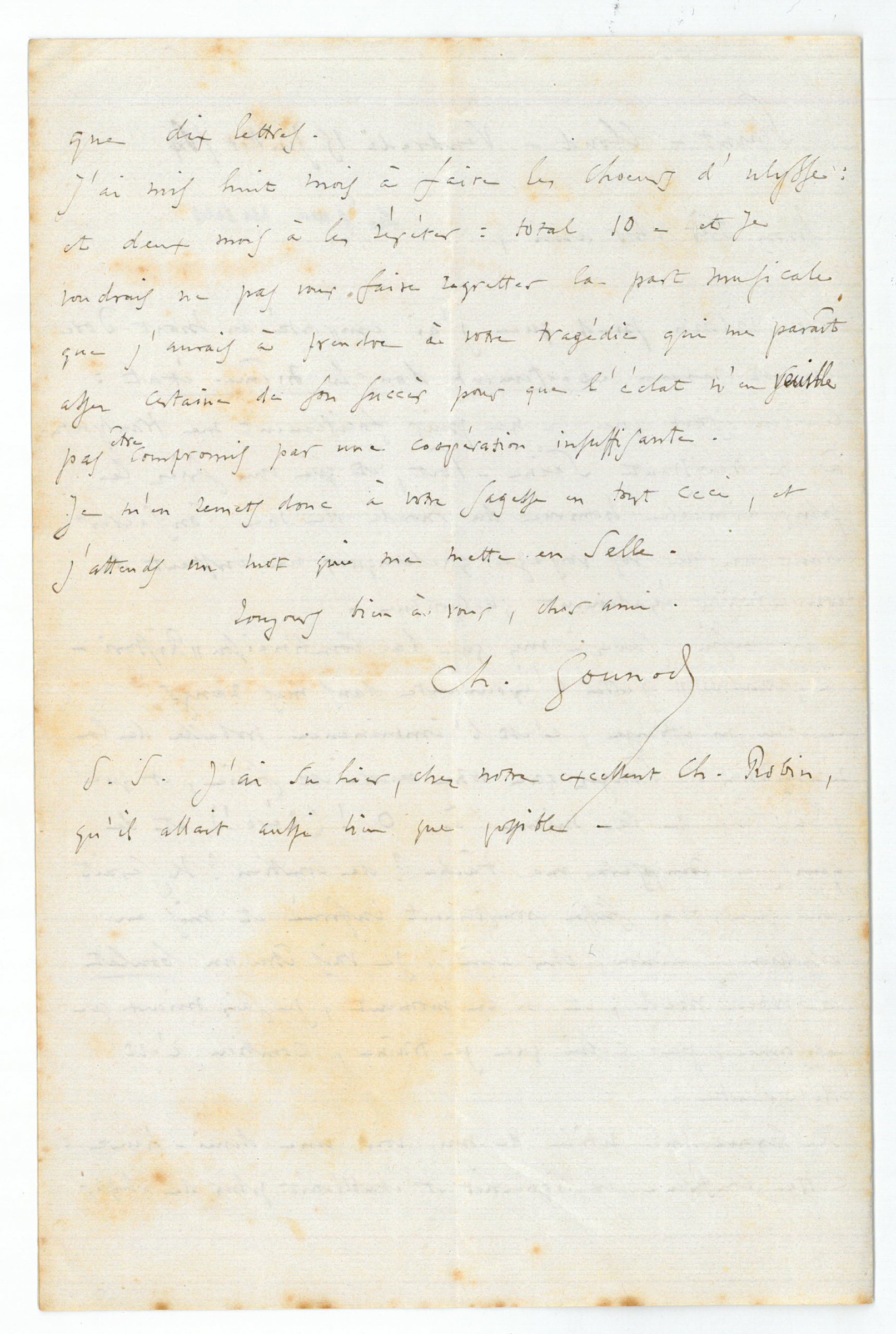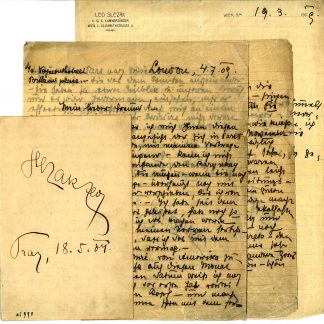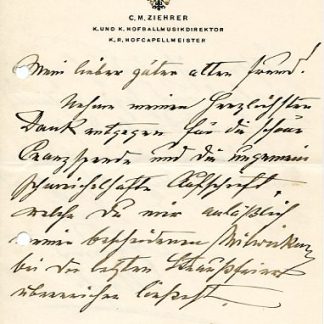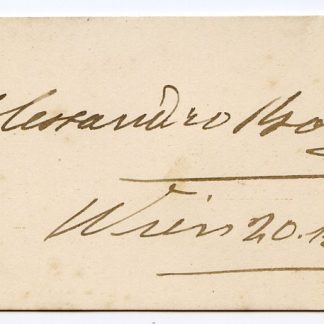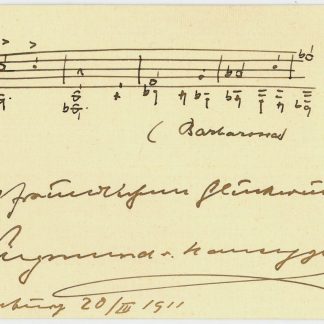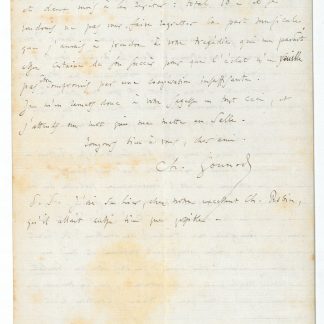"I await a word that gets me started": Charles Gounod's collaboration with Ernest Legouvé
Autograph letter signed.
8vo. 1½ pp. on bifolium. In French.
€ 850,00
Charming, highly interesting letter to the playwright Ernest Legouvé, concerning a collaboration on the play "Les Deux Reines de France". Gounod writes jokingly that he is frightened by the possibilty of the actual realization of the project in Léon Carvalho's Théâtre-Lyrique with Adelaïde Ristori in one of the leading roles: "Do you know that the combination 'Ristori-Carvalho' throws the terror in my ranks! What frightens me is the probable imminence of the realization. Consider that your work is finished, and that I am at 0 of mine! (Zero!) and in what will my task consist?" As Gounod could not visit Legouvé in Seine-Port due to a foot injury mentioned at the beginning of the letter, he asks him for a meeting in Paris: "It would therefore be useful to see each other for half an hour: this conference would explain and establish more things than ten letters". For the moment, Gounod is not sure what is expected of him, and apparently he did not have the text: "It would be good if I were promptly informed and put in possession of it: otherwise, dear friend, I will be a ball and chain at your feet; and at this moment, I know better than anyone, by the one I drag, how unpleasant it is". Furthermore, he is concerned about the time frame, comparing the task to his incidental music for François Ponsard's "Ulysse" in 1852: "It took me eight months to write the choruses for Ulysses, and two months to rehearse them: a total of ten, and I would not like to make you regret the musical part I would have to play in your tragedy, which seems to me to be sufficiently certain of its success that the brilliance of it should not be compromised by an insufficient cooperation".
Gonoud did indeed compose music for Ernest Legouvé's tragedy, but the piece was barred from performance by censorship. It did not see its premiere until 1872, at the Théâtre Ventadour, and failed with the audience.
Very slight foxing.

